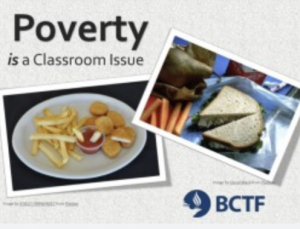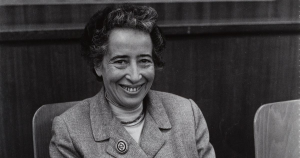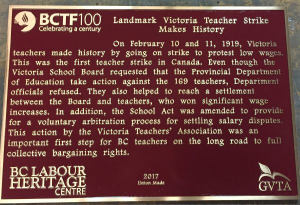
- Originally published in PRDTU Social Justice Committee Newsletter (Winter 2025)
The Prince Rupert District Teachers’ Union (PRDTU) and the B.C. Teachers’ Federation (BCTF) are social justice unions. Social justice guides not only our union, but also our work as teachers. We animate public education. We do this as an act of social justice, by simply showing up and doing our job. As teachers, we extend education to all, defend democracy, and contribute to our community.
Education as an Act of Love and Responsibility

Hannah Arendt, political philosopher and scholar of Ha-Shoah (the Holocaust), wrote that “education is the point at which we decide whether we love the world enough to assume responsibility for it” (The Crisis in Education, 1954).
Teachers do love the world this much. And we do take responsibility for it.
Loving the world this much is hard work and requires professional competency.The professional practice of absolute and abundant love for the world, for all students, is both highly skilled and deeply intuitive. It is work grounded in the recognition of the power of universal literacy (both spoken and written) and of universal scholarship (the shared production of knowledge). Literacy and scholarship have always been necessary for human survival. They animate universal dignity. In short, teachers are defenders of democracy.
Teachers Are Defenders of Democracy

The goals of the BCTF make this clear; that teachers are defenders of democracy. For starters, the Members’ Guide opens with (on its first page) with the statement of the union’s purpose as helping to ensure that public schools continue to develop the intellectual, physical, social, and emotional growth for all children and youth in the province.
Achieving this purpose is why we formed the union. It is also why we continue as a profession. As with the practice of public education, the practice of solidarity-based democratic trade unionism is social justice. The job of the PRDTU’s Social Justice Committee to is help us each contribute to this purpose. Together, we can do this!
Teaching Conditions are a Social Justice Issue

The Members’ Guide continues by outlining how we, as a union, work to achieve our mission. First, we promote sound learning and teaching conditions in every school, including through the provision of adequate support services. We work together to help integrate social and educational services that contribute to each student’s welfare and development.
And we encourage full public participation in how schools achieve their mission. We search for solutions, we promote initiatives to help all children and youth achieve their potential, we work to eliminate barriers, and we work to ensure that universal access to public education is secure for all, including by eliminating all forms of discrimination from B.C. schools.
The BCTF necessarily has many priorities and goals. All of which focus on building, sustaining, and protecting public education as a universally accessible program that works for all children and youth in the province. This is built on a simple principle: Every child has an equal right to an education. Every child. Every community. Equally accessible. Equally empowering. Period.
This means that B.C. (and SD52) should be delivering on our society’s promise that each student will learn to read, will learn to write, will learn to think constructively, and will learn how to access and understand knowledge to their ability, so that they may thrive – having learned the skills necessary to participate fully in a democratic society.
This includes every child witnessing respect of, and experiencing connection to, their culture, family, nation, and community; every child seeing themselves reflected back at them when viewing their school. This must be realized for each child. Every child respected. Every child welcomed. Every child safe, secure, supported, and cared for. Universal means just that: Universal.
Our union’s Members’ Guide spells out how we will continue to carry this out. As a union we advance the professional growth of teachers through professional development and in-service education. We establish and maintain a Code of Ethics. We establish standards of entry and set criteria and procedures for the assessment of professional competence. And we ensure teachers’ professional autonomy is respected, through our democratic processes.
We push back on unjust regulations and protect teachers from capricious actions against them, especially by adhering to the principles of teachers’ professional autonomy and by strengthening the Collective Agreement. And we work to secure professional wages, good working conditions, and adequate funding for public education.
The BCTF and PRDTU are, first and foremost, organizations that are committed to teaching as social justice. Teachers practice social justice daily – by just showing up and doing our jobs. We advance social justice by making our schools places that welcome all students, provide all students with education, and that put all children and youth at the centre of our work. And our union’s job is to defend us in carrying this out.
Social Justice Lens: Access, Agency, Advocacy
The PRDTU’s Social Justice Committee supports all of this. Its first job is to support members in the practice of teaching as social justice. The PRDTU’s Social Justice Committee can do this by building networks, sharing resources, and educating each other on the Code of Ethics, Teachers’ Professional Autonomy, the Collective Agreement, Members’ Guide, and the BCTF Social Justice Lens.
Through networks, professional conversations, and education about the union, we help solve problems (such as the problem of barriers for students, underfunding of public education, de-professionalism, etc.). Specifically, the committee applies the BCTF Social Justice Lens to its work, which points to these four guiding principles: Access, Agency, Advocacy, and Solidarity.